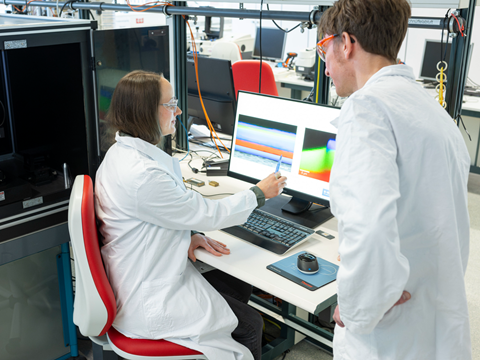
BASF has teamed up with Endress+Hauser, TechnoCompound and the Universities of Bayreuth and Jena to study how to improve the mechanical recycling of plastics, aiming to identify the composition of plastic waste during recycling and improve the quality of recycled plastics.
BASF says that currently, most of the plastic waste that is sent for recycling is mechanically recycled. The waste is collected, sorted, crushed, cleaned and then melted. Depending on the input material and the degree of sorting, this melted material can contain different types of plastics, additives and contaminants, meaning the quality of the recycled output varies and is not always sufficient to be transformed back into high-value plastic products.
In cases where mechanical recycling is not technologically feasible or too complex, plastics can be brought back into the material loop via chemical recycling. BASF states that both recycling processes are important for a functioning circular economy and can complement each other.
With funding from the German Federal Ministry of Education and Research (BMBF), the project will combine measuring techniques with artificial intelligence (AI), using spectroscopic methods which interpret how the material interacts with light to gain information about the chemical structure of the recycled plastics.
The total project volume is €2.2 million, with two-thirds financed by BMBF funds from its quantum systems research program and one-third financed by the project partners.
The project partners plan to use this data to determine in real time during processing which plastic grades, additives and contaminants are contained in the material. In a subsequent step, an AI algorithm will recognize patterns in the measurement data and recommend which additional components should be added or how the recycling process should be adapted to improve the quality of the recycled plastic output.
Dr. Bernhard von Vacano, head of the Plastics Circularity research program at BASF, commented: “We do not currently have the necessary analysis tools to determine during processing exactly which components are contained in the mechanically recycled plastics. This will enable us to use more mechanically recycled plastics to produce high-quality products and to make recycling processes more efficient and sustainable.”
At the start of this year, as part of our Brief series we explored the role of chemical recycling and whether we can reach a consensus as to the role it should play in recycling efforts going forward. We investigated the debate around chemical vs. mechanical recycling and looked for common ground upon which key players across the packaging industry can build towards a more sustainable recycling chain.
In October, Joshua Dill, analyst of Plastics Recycling at ICIS, told us about the benefits of established guidelines for companies on how to allocate chemically recycled material to their products. He also touched on the concept of mass balance, stating that it is becoming increasingly important to maintain clarity on how the recycled material is being allocated.
If you liked this story, you might also enjoy:
The ultimate guide to the Packaging and Packaging Waste Regulation in 2024
How are the top brands progressing on packaging sustainability?
Sustainable Innovation Report 2024: Current trends and future priorities
Everything you need to know about global plastic sustainability regulation














No comments yet